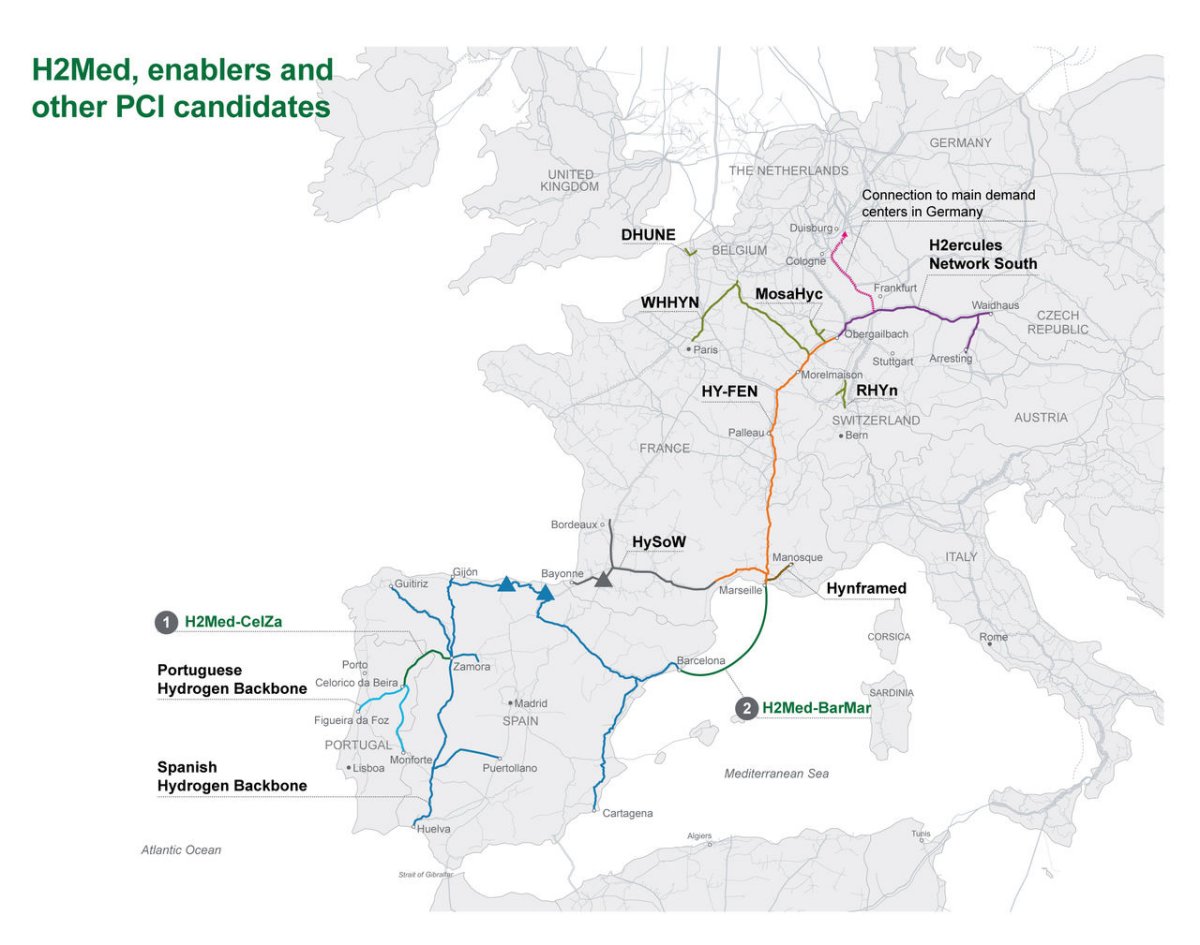
In a significant move towards fostering European energy cooperation, OGE, the Transmission System Operator in Germany, has joined hands with Enagás (Spain), GRTgaz and Teréga (France), and REN (Portugal) as a promoter for the H2Med green hydrogen project. The memorandum of understanding was signed during the event titled "H2Med, an example of European energy cooperation," held at the Spanish Embassy in Berlin.
The H2Med project stands as the first green hydrogen corridor for Germany, emphasizing its commitment to sustainability and collaboration among European Transmission System Operators (TSOs). The project, submitted to the European Projects of Common Interest (PCIs) last December, envisions connecting Celorico da Beira in Portugal to Zamora in Spain (CelZa) and establishing a maritime connection between Barcelona and Marseille (BarMar).
Dr. Frank Reiners, CFO of OGE, highlighted the project's significance, stating, "A hydrogen pipeline connecting Portugal, Spain, France, and Germany represents more than just a vital hydrogen import corridor. It symbolizes a powerful bridge toward a sustainable future." The event saw participation from government representatives and TSOs from Portugal, Spain, France, and Germany, emphasizing the real need for H2Med to address Europe's growing demand for green hydrogen.
The CEO of Enagás, Arturo Gonzalo, underscored the importance of OGE's inclusion, noting that it strengthens collaboration among the governments and TSOs of the four countries. Gonzalo emphasized the crucial role of H2Med in aligning with Europe's renewable energy targets and fostering cooperation, decarbonization, and energy sovereignty.
Thierry Trouvé, CEO of GRTgaz, described H2Med as a groundbreaking initiative, representing the world's first green hydrogen corridor project. It signifies Europe's commitment to establishing a robust hydrogen market, aiming to decarbonize industry and mobility while ensuring a reliable domestic supply.
Rodrigo Costa, Chairman and CEO of REN, stressed the project's importance in connecting the western part of continental Europe to central and northern Europe. He highlighted the role of H2Med in contributing to a more integrated and independent European energy market, supporting decarbonization, and providing flexibility in sector coupling with electricity.
Dominique Mockly, Chairman and CEO of Teréga, described H2Med as a visionary bridge to a sustainable future, fostering progress, energy sovereignty, and clean energy across Europe. He emphasized the project's role in uniting regions of competitive hydrogen production with areas of high demand.
The event saw support from the European Union and the governments of Germany, France, and Spain for the development of H2Med as the first large-scale green corridor connecting the Iberian Peninsula with northwest Europe. Dr. Franziska Brantner, Parliamentary State Secretary of the German Federal Ministry for Economic Affairs and Climate Action, highlighted the importance of green hydrogen in Germany's decarbonization strategy.
The H2Med project and associated corridor projects are making positive progress in acquiring the qualification as Projects of Common European Interest (PCI). The European Commission is set to publish its proposed PCI list in November 2023, with confirmation expected in early 2024 by Parliament and the Council. H2Med is poised to play a crucial role in Europe's journey towards climate neutrality by 2050, offering a sustainable and innovative solution to the continent's energy needs.